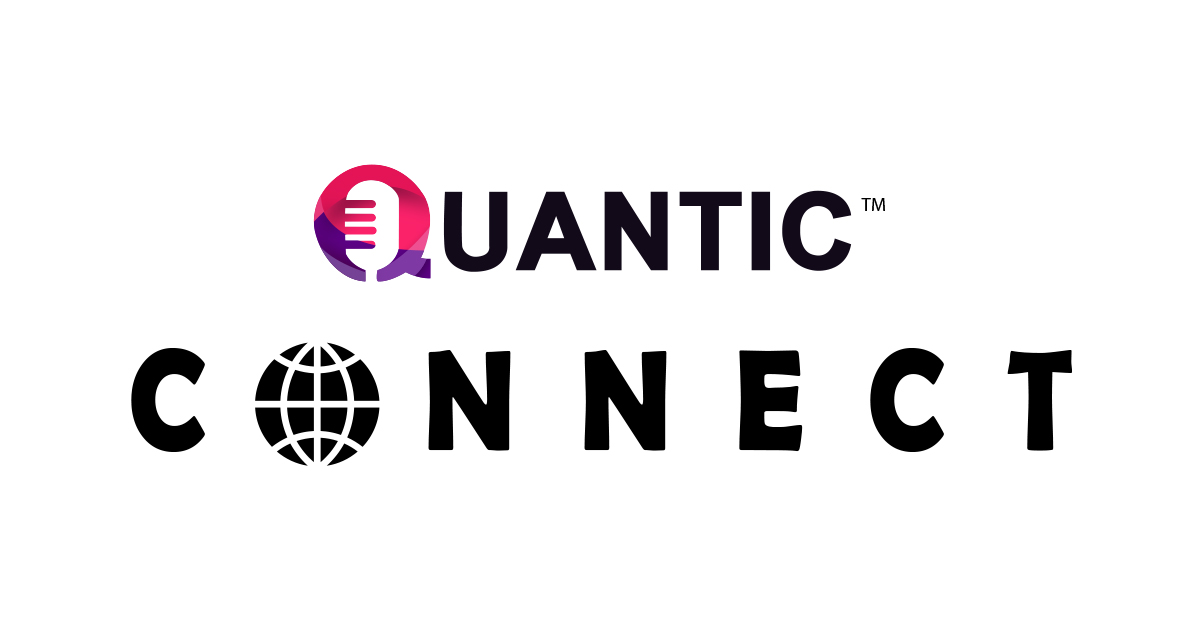Bengaluru, March 06: In the fast-paced world of software development, DevOps has emerged as a transformative force, reshaping traditional methodologies and fostering collaboration between development and operations teams. In this exclusive interview, we delve into the dynamic realm of DevOps with industry expert who share insights, experiences, and strategies for navigating the evolving landscape of modern software engineering. From its inception to its far-reaching impact on organizations worldwide, join us as we unravel the intricacies of DevOps and explore its pivotal role in driving innovation and agility in the digital age.
With over 18 years of illustrious experience in engineering leadership, Mr. Achal Sharma have consistently driven unparalleled growth within the organizations he have had the privilege to lead as the Vice President of Technology at Wakefit, he’s committed to fostering innovation and propelling the company towards new heights of success.
Throughout his career, he have held pivotal roles in scaling industry giants such as Wakefit, MPL, mFine, Myntra, and other esteemed organizations. His leadership has been instrumental in catalysing their evolution from humble beginnings to remarkable 10x growth trajectories.
Having been an early joiner at Myntra and MPL, he possess invaluable insights and experiences that have shaped the strategic approach to leadership. At Myntra, he played a pivotal role in navigating the organization through pivotal moments of growth, laying the groundwork for its success in the fiercely competitive e-commerce landscape. Similarly, his early involvement with MPL allowed him to contribute to its evolution from its nascent stages to becoming a prominent player in the gaming industry.
These experiences have endowed him with a profound understanding of the challenges and opportunities inherent in scaling innovative ventures. As a strategic leader in engineering and technology, he is dedicated to driving forward-thinking strategies and fostering a culture of innovation within dynamic, high-performing teams.
What would you identify as the most important skills and qualities for someone aspiring to be a successful DevOps leader, especially in today’s rapidly evolving technological landscape?
Becoming a successful DevOps leader requires a combination of technical expertise, leadership skills, and adaptability to navigate the rapidly evolving technological landscape. Here are some of the most important skills and qualities for aspiring DevOps leaders:
- Technical Proficiency: A strong foundation in software development, system administration, and infrastructure automation is essential for DevOps leaders.
- They should have expertise in tools and technologies such as cloud platforms
- (AWS, Azure, Google Cloud), containerization (Docker, Kubernetes), configuration management (Ansible, Chef, Puppet), and continuous integration/continuous deployment (CI/CD) pipelines.
- Collaboration and Communication: DevOps leaders must excel in building and
- Fostering collaborative relationships between development, operations, and other cross-functional teams. Effective communication skills are crucial for conveying technical concepts, aligning goals, and resolving conflicts to ensure smooth collaboration and teamwork.
- Problem-Solving Skills: DevOps leaders should be adept at identifying, analyzing, and solving complex technical problems and challenges. They need to have a
- Proactive and solution-oriented mindset to address issues quickly and efficiently, leveraging automation and innovative approaches to drive continuous Improvement.
- Strategic Thinking: Successful DevOps leaders possess strategic thinking skills to align DevOps initiatives with broader business objectives and organizational priorities. They should be able to develop and execute strategic roadmaps, prioritize initiatives, and allocate resources effectively to drive business value and competitive advantage.
- Adaptability and Continuous Learning: Given the rapidly evolving nature of technology, DevOps leaders must be adaptable and open to continuous learning and skill development. They should stay updated on emerging trends, best practices, and industry developments to effectively lead their teams and drive innovation.
- Change Management: DevOps leaders should be skilled in change management practices to navigate organizational changes, process improvements, and technology implementations effectively. They need to communicate change. Initiatives clearly, manage resistance, and facilitate smooth transitions to drive adoption and success.
- Metrics-Driven Approach: DevOps leaders should embrace a metrics-driven approach to measure performance, track key performance indicators (KPIs), and monitor the impact of DevOps initiatives on business outcomes. They should leverage data and analytics to make informed decisions, identify areas for improvement, and drive continuous optimization and efficiency.
By cultivating these skills and qualities, aspiring DevOps leaders can effectively lead Their teams, drive organizational transformation, and succeed in today’s rapidly evolving technological landscape
How do you balance the technical aspects of software development with the managerial responsibilities of sprint planning, code review, and team leadership?
Balancing technical responsibilities with managerial duties in software development requires effective time management, delegation, and prioritization. Here’s how to achieve this balance:
- Set Clear Priorities: Understand the overarching goals and priorities of the project and organization. Prioritize tasks based on their impact on project delivery and business objectives.
- Delegate Tasks: Delegate technical tasks that can be handled by team members, allowing you to focus on higher-level managerial responsibilities. Empower team members by providing clear instructions, resources, and support.
- Time Blocking: Allocate specific time blocks for technical work, such as coding or code review, and separate time blocks for managerial tasks, such as sprint planning or team meetings. Stick to these time blocks to ensure focus and productivity.
- Effective Communication: Communicate expectations, goals, and progress with your team regularly. Provide feedback on technical work and support team members in overcoming challenges. Keep team members informed about project status and upcoming tasks.
- Leverage Automation and Tools: Use automation tools and technologies to streamline repetitive technical tasks, such as automated testing, deployment pipelines, and code analysis tools. This frees up time for managerial Responsibilities.
- Collaborative Decision-Making: Involve team members in decision-making processes, such as sprint planning or architectural design discussions. Encourage collaboration and leverage the collective expertise of the team to make informed
- Continuous Learning: Stay updated on technical advancements and best practices in software Invest in continuous learning and skill development to maintain technical proficiency while balancing managerial responsibilities.
- Effective Time Management: Prioritize tasks based on urgency and Use techniques such as the Eisenhower Matrix or time blocking to allocate time effectively to different responsibilities.
- Lead by Example: Demonstrate a strong work ethic and commitment to both Technical excellence and effective leadership. Show willingness to roll up your sleeves and contribute to technical tasks when necessary, while also providing guidance and support to your team.
- Regular Reflection and Adaptation: Reflect on your time management and workload Identify areas where adjustments can be made to achieve a better balance between technical and managerial responsibilities. Adapt your approach based on feedback and lessons learned.
Absolutely, building a scalable system requires streamlining various aspects of the development process. Let’s delve into each of the points mentioned below:
- Code Review Process in DevOps:
- Implementing a robust code review process is crucial for maintaining code quality, consistency, and reliability in a DevOps This involves establishing clear guidelines for code review, conducting regular peer reviews, and leveraging automation tools for code analysis and review. By streamlining the code review process, teams can identify and address issues early in the development lifecycle, ensuring that only high-quality code is deployed to production.
- Self-Serve Tools:
- Providing self-service tools and platforms empowers development teams too quickly and independently provision resources, deploy applications, and troubleshoot This includes creating automated pipelines for CI/CD, offering self-service environments using infrastructure as code (IaC) tools, and providing self-service monitoring and logging solutions. By enabling Teams to self-serve, organizations can accelerate development cycles, Reduce dependency on centralized teams, and improve overall agility and efficiency.
- Documentation and Process-Oriented Developments:
- Documentation plays a vital role in ensuring knowledge sharing, collaboration, and consistency across teams. Establishing clear documentation standards, documenting processes, best practices, and architectural decisions, and maintaining up-to-date documentation is Essential. Additionally, adopting a process-oriented approach to development involves defining and refining workflows, implementing Standardized processes, and continuously improving processes based on feedback and lessons learned. This fosters a culture of accountability, efficiency, and continuous improvement within the organization.
- Build an Automated Server-Scaled System:
- Automating server scaling and resource provisioning is crucial for ensuring scalability, reliability, and cost-effectiveness in a DevOps Environment. Leveraging cloud-native technologies, infrastructure as code (IaC), and container orchestration platforms enables organizations to automate the provisioning, scaling, and management of infrastructure and applications. By dynamically adjusting resources based on demand, Organizations can efficiently handle fluctuating workloads, minimize downtime, and optimize resource utilization.
- Lead by Example and Set Goals:
- Leadership plays a pivotal role in driving cultural and organizational change towards scalability and efficiency. Leaders should lead by Example, championing DevOps principles, best practices, and continuous improvement initiatives. Setting clear goals, defining measurable objectives, and fostering a culture of accountability and innovation Encourages teams to strive for excellence and actively contribute to building scalable systems.
By focusing on these key areas and continuously iterating and improving processes, organizations can build scalable systems that meet the demands of today’s dynamic and fast-paced business environments and you can effectively balance the technical aspects of software development with managerial responsibilities, ensuring successful project delivery and team leadership
How has automation transformed the landscape of DevOps practices within your organization and could you share specific examples of how automation tools and frameworks have enhanced efficiency, reliability, and scalability in DevOps workflows?
Automation has significantly transformed the landscape of DevOps practices within organizations, including my hypothetical organization. Here are some ways automation tools and frameworks have enhanced efficiency, reliability, and scalability in DevOps workflows:
- Automated Testing: Test automation frameworks such as Selenium, JUnit automate the execution of tests, including unit tests, integration tests, and end-to-end tests. Automated testing ensures code quality and detects defects early in the development lifecycle, reducing the likelihood of bugs reaching production and enhancing reliability.
- Monitoring and Alerting: Automation tools like Prometheus, Grafana, or Datadog automate the collection, visualization, and analysis of system metrics and logs. Automated monitoring and alerting enable teams to detect and respond to issues proactively, ensuring system availability, performance, and reliability.
- Containerization and Orchestration: Container orchestration platforms such as Kubernetes or Docker Swarm automate the deployment, scaling, and management of containerized applications. By abstracting away infrastructure complexity and automating tasks like load balancing and service discovery, container orchestration enhances efficiency, reliability, and scalability.
- Security Compliance: Automation tools such as Chef, Puppet, or Ansible automate security compliance checks and remediation tasks. By enforcing security policies and configurations through automation, organizations can ensure compliance with regulatory requirements and mitigate security risks more effectively.
- Configuration Management: Configuration management tools like Chef, Puppet, or Ansible automate the provisioning and configuration of servers and applications. Automation ensures consistency and repeatability in configuration changes, reducing manual errors and enhancing reliability.
- Release Management: Release automation tools such as Spinnaker or Harness automate the deployment and rollback of application releases across environments. By automating release processes, teams can ensure smooth and consistent deployments, improving efficiency and reliability.
Overall, automation plays a critical role in streamlining DevOps workflows, enabling organizations to deliver software faster, with higher quality, and at scale. By leveraging automation tools and frameworks effectively, organizations can achieve greater efficiency, reliability, and scalability in their DevOps practices.
To know more about us / publish your article, reach us at
www.quanticindia.com
marquis@quanticindia.com.



